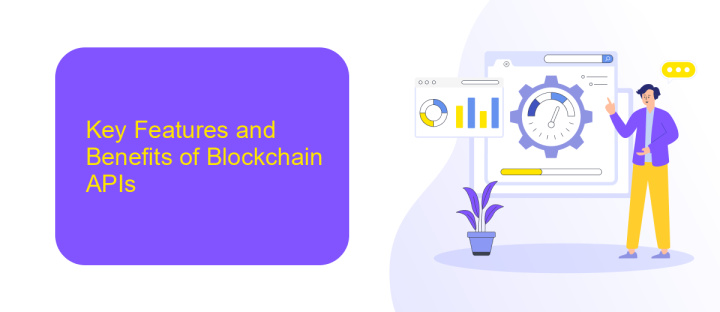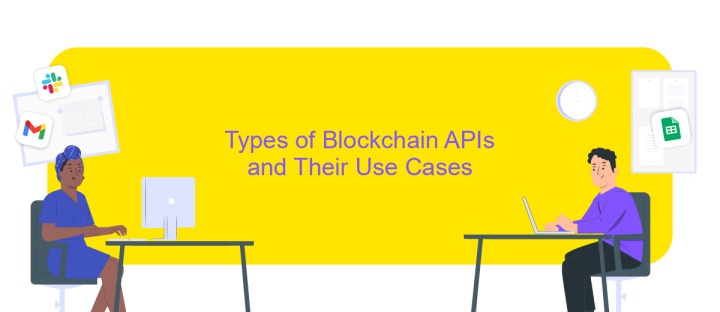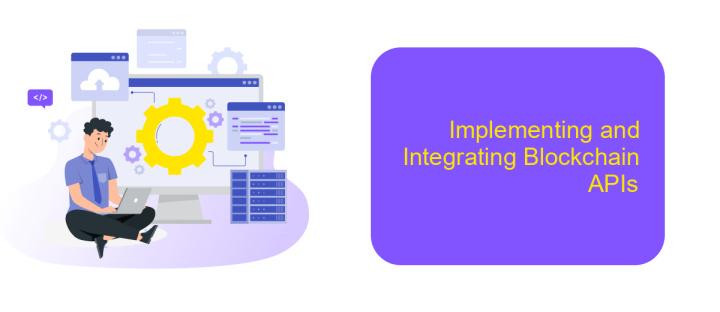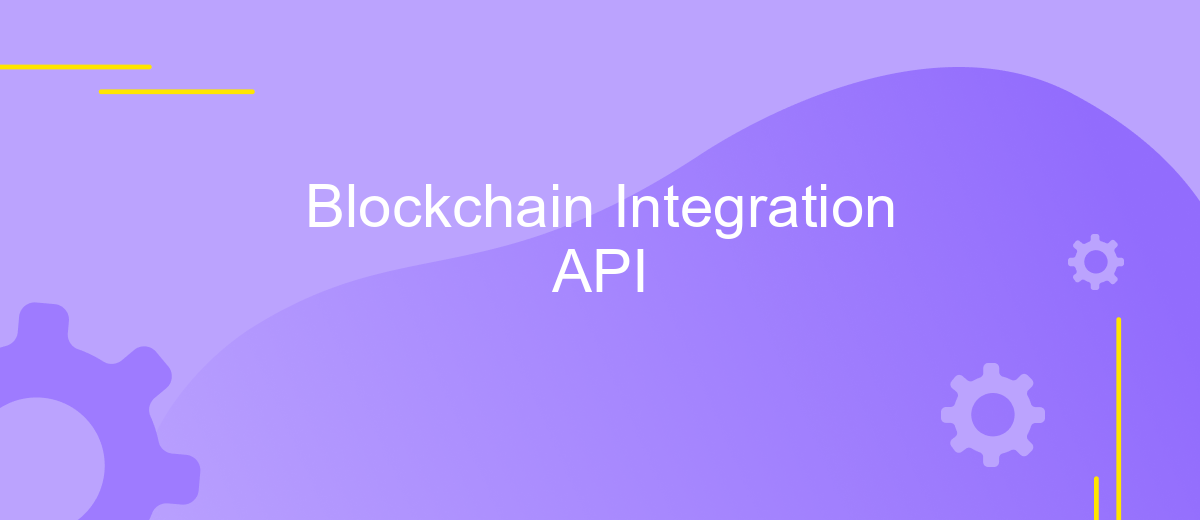Blockchain Integration API
In today's rapidly evolving digital landscape, integrating blockchain technology into existing systems has become increasingly essential for businesses seeking enhanced security and transparency. The Blockchain Integration API offers a seamless solution for developers and organizations aiming to harness the power of blockchain without the complexities of building from scratch. This article explores the benefits and functionalities of the API, highlighting its potential to revolutionize data management and transactional processes.
Introduction to Blockchain Integration APIs
Blockchain Integration APIs are essential tools for developers seeking to harness the power of blockchain technology in their applications. These APIs provide a bridge between traditional software systems and decentralized blockchain networks, enabling seamless interaction and data exchange. By utilizing blockchain integration APIs, developers can enhance their applications with features such as secure transactions, immutable records, and smart contract functionality.
- Facilitate seamless communication between applications and blockchain networks.
- Enable secure and transparent transactions across decentralized platforms.
- Support the execution of smart contracts for automated processes.
- Provide access to real-time blockchain data for enhanced decision-making.
- Ensure data integrity and immutability through distributed ledger technology.
Incorporating blockchain integration APIs into applications not only boosts security and transparency but also opens up new opportunities for innovation. As blockchain technology continues to evolve, these APIs will play a crucial role in driving the adoption and development of decentralized applications across various industries. By leveraging these tools, businesses can stay ahead in the rapidly changing technological landscape and unlock the full potential of blockchain solutions.
Key Features and Benefits of Blockchain APIs

Blockchain APIs offer a seamless way to interact with blockchain networks, providing developers with tools to integrate blockchain functionalities into their applications effortlessly. One of the key features is the ability to access and manage blockchain data in real-time, enabling businesses to harness the power of decentralized technology without the need for deep technical expertise. These APIs often come with robust security protocols, ensuring that data integrity and user privacy are maintained. Additionally, they support various blockchain networks, offering flexibility and scalability to adapt to different business needs.
The benefits of using Blockchain APIs extend to streamlined integration processes, which can significantly reduce development time and costs. Services like ApiX-Drive facilitate this by offering user-friendly platforms that automate the connection between blockchain systems and existing applications. This automation not only simplifies the integration process but also allows for continuous updates and maintenance, ensuring that businesses remain at the forefront of technological advancements. Furthermore, Blockchain APIs enhance transparency and traceability, crucial for industries such as finance and supply chain, where accountability is paramount.
Types of Blockchain APIs and Their Use Cases

Blockchain APIs are essential tools that facilitate interaction with blockchain networks, enabling developers to harness the power of decentralized technology. These APIs offer various functionalities, each tailored to specific use cases, making blockchain integration more accessible and efficient.
- Data APIs: These APIs provide access to blockchain data, allowing developers to retrieve transaction details, block information, and historical data. They are crucial for applications requiring real-time data analysis and auditing.
- Wallet APIs: Wallet APIs enable the creation, management, and security of digital wallets. They are widely used in applications that require cryptocurrency transactions and storage solutions.
- Smart Contract APIs: These allow developers to deploy, execute, and interact with smart contracts. They are vital for creating decentralized applications (dApps) and automating processes on the blockchain.
- Payment APIs: Payment APIs facilitate cryptocurrency transactions, making them indispensable for e-commerce platforms and financial services that accept digital currencies.
By leveraging these blockchain APIs, developers can build robust applications that capitalize on blockchain's transparency, security, and decentralization. Each type of API addresses specific needs, ensuring seamless integration and enhancing the overall user experience.
Implementing and Integrating Blockchain APIs

Implementing blockchain APIs involves understanding the fundamental components and protocols of blockchain technology. Developers must first choose the appropriate blockchain platform that aligns with their project requirements, such as Ethereum, Bitcoin, or Hyperledger. Once the platform is selected, the next step is to familiarize oneself with the platform's specific API documentation, which provides guidelines on how to interact with the blockchain network.
Integration of blockchain APIs into existing systems requires careful planning and execution. Developers need to ensure that the integration process is seamless and does not disrupt current operations. This involves assessing the current system architecture and determining how blockchain technology can enhance or optimize existing processes. Security considerations are paramount, as blockchain transactions are immutable and require robust authentication mechanisms.
- Identify the blockchain platform and understand its API documentation.
- Plan the integration process to align with existing system architecture.
- Implement robust security measures to protect blockchain transactions.
- Test the integration thoroughly to ensure seamless operation.
Successful implementation and integration of blockchain APIs can significantly enhance the efficiency and transparency of business operations. By leveraging the decentralized nature of blockchain, organizations can achieve greater data integrity and security. Continuous monitoring and updates are essential to maintain the effectiveness of the integrated blockchain solutions.
Future Trends and Challenges in Blockchain API Development
As blockchain technology continues to evolve, the development of Blockchain APIs is set to face both exciting opportunities and significant challenges. One of the future trends is the increasing demand for seamless integration of blockchain with existing systems. This requires APIs to be more flexible and adaptive, allowing for easier integration processes. Services like ApiX-Drive are pivotal in this landscape, offering streamlined solutions for connecting blockchain platforms with other applications, thereby reducing the technical barriers and accelerating adoption.
However, the challenges are equally notable. Security remains a top concern, as APIs are potential entry points for cyber threats. Ensuring robust security measures while maintaining performance and scalability is crucial. Additionally, the lack of standardization in blockchain protocols can complicate API development, necessitating APIs to support multiple blockchain frameworks. Developers must also keep up with the fast-paced advancements in blockchain technology, ensuring their APIs remain relevant and efficient. Balancing these trends and challenges will define the future success of Blockchain API development.
FAQ
What is a Blockchain Integration API?
How can I start integrating blockchain into my application?
What are the benefits of using a Blockchain Integration API?
Can I automate blockchain transactions with an API?
What security measures should I consider when using a Blockchain Integration API?
Apix-Drive will help optimize business processes, save you from a lot of routine tasks and unnecessary costs for automation, attracting additional specialists. Try setting up a free test connection with ApiX-Drive and see for yourself. Now you have to think about where to invest the freed time and money!

